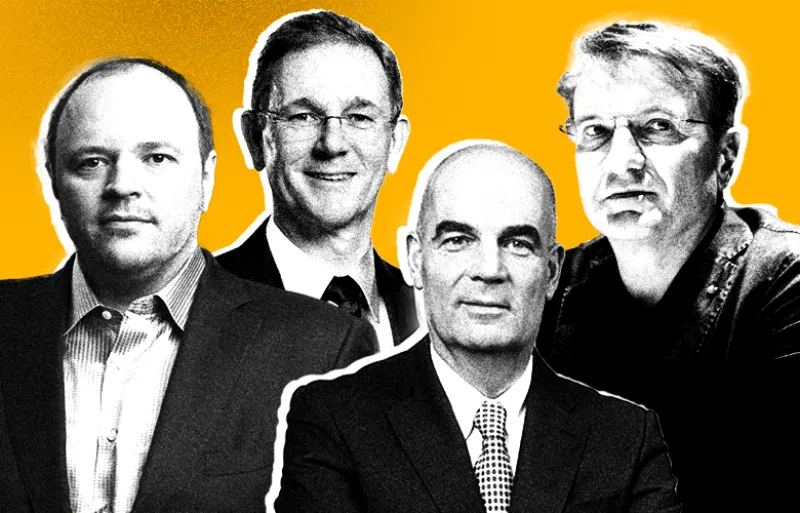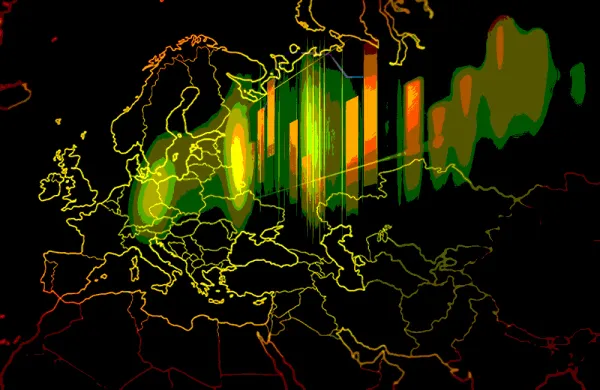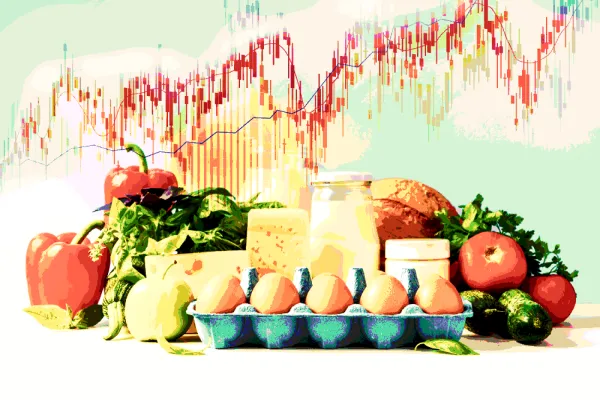Business leaders in Western emerging markets are investing heavily in improving environmental practices, from using recyclable packaging to adopting fabric filters that reduce emissions in power plants.
The region’s top chief executives, as ranked in Institutional Investor’s first-ever Emerging EMEA Executive Team, pointed to consumer demand as the driving force behind the shift to more environmentally-friendly business. “2018 has seen a welcome and necessary surge of consumer interest in finding solutions to environmental issues, including plastic in our oceans,” said Peter Oswald, chief executive at packaging conglomerate Mondi. “From high-profile documentaries to heart-wrenching photographs – it is clear that we all need to take action.”
These companies are going one further and making plans not just to improve sustainability in the present, but to cope with the demands of the future. PhosAgro, the Russian chemical fertilizer company, is rapidly expanding the numbers of fertilizers on the market to address food security in a time of unprecedented population growth. Meanwhile, Enel Russia is investing in storage solutions and e-mobility, or electric vehicles.
Many chief executives are embracing efficiencies offered by the fourth industrial revolution, in which big data and automation are playing a growing role in helping companies gain a competitive advantage. PhosAgro has invested over $2.5 billion into upgrading and expanding its operations over the last five years, while Mondi is investing in robots to cut manufacturing costs.
Russian leaders stress that the country is open for business. Andrey Guryev, chief executive of PhosAgro, says Russia is increasingly competitive, stable, and transparent – with significant opportunities for investors in a number of sectors. “I think that most foreign investors recognize that Russian assets are currently significantly undervalued compared to many other comparable markets,” he said.
These executives also have one eye on the World Cup, which was hosted by Russia in 2018, though the home team was knocked out by Croatia in the quarter finals. How does Carlo Palasciano Villamagna, general director of Enel Russia, hope the year will be remembered? “With Russia being one of the most important football teams in the World Cup.”
Carlo Palasciano Villamagna, General Director, Enel Russia
Utilities
What’s the biggest challenge facing your sector right now?
The power sector is experiencing a huge transformation all over the world, Russia included. The trends of urbanization and digitalization, the increasing use of renewables, and a more active role played by consumers require new ways of using energy and new technologies. In Russia, we are working hard on the diversification of our portfolio embedding renewables in our strategy, on the digitalization of our operations to increase efficiency, and on the modernization of our fleet to remain competitive in a market where overcapacity dominates.How is your company being innovative?
Enel is one of the leading utilities driving innovation in the power sector, and Enel Russia benefits from being part of the Group. We were among the first companies in Russia to commission new combined-cycle gas turbines units at our power plants and to install fabric filters to reduce emissions. We are also the first company in the country to have implemented a dry ash removal system, which was installed at Russia’s largest coal power plant, Reftinskaya GRES. Moreover, last year we entered the renewables market with two wind projects of 291 megawatt assigned capacity and, last but not least, we opened the Enel Innovation hub in Russian Skolkovo, so we expect to further push innovation in the Russian power sector in the years to come.What should foreign investors know before investing in your country?
Russia is a country of big challenges and big opportunities, so if you strongly believe in your ideas and you work hard, you will be rewarded with a huge success. The country supports reliable investors that come here with a long-term vision. Trust starts with you and is reciprocated with mutual respect.How will 2018 be remembered?
With Russia being one of the most important football teams in the World Cup. Jokes aside, this year is full of new projects and new plans. We are working on developing new energy solutions for the Russian energy market, such as storage and e-mobility, but our main focus will be on a new long-term program for the modernization of Russian generation fleet which we are closely following.
Peter Oswald, CEO, Mondi
Paper & Forestry
What’s the biggest challenge facing your sector right now?
The challenge for the packaging industry globally is to significantly reduce packaging material (and thus carbon emissions and energy), where possible move to renewable materials likepaper, and to reuse or recycle packaging, thus creating a circular economy.
How is your company being innovative?
Mondi is at the forefront of sustainable packaging, addressing challenges with many incremental and major innovations. Some key examples are water-resistant bags that replace plastic bags for products like lawn fertilizer and cement. Also, our innovative material-light flexible packaging substitutes material-heavy rigid plastics, for example stand-up pouches for drinks, baby food, or shower gel. This substitution reduces plastics by around 70 percent and significantly lowers carbon emissions. Our award-winning stand-up pouches for cat food replace material-intensive metal cans.What should foreign investors know before investing in your country?
Mondi is truly global with three corporate offices in Johannesburg, London, and Vienna, and operations in over 30 countries. Manufacturing across the globe brings its challenges and we believe that building local leadership teams who understand the culture and market dynamics plays a big role in being successful.How will 2018 be remembered?
2018 has seen a welcome and necessary surge of consumer interest in finding solutions to environmental issues, including plastic in our oceans. From high-profile documentaries to heart-wrenching photographs – it is clear that we all need to take action. I’d like to remember 2018 as the year where Mondi gains traction in contributing to a better world.
Andrey Guryev, CEO, PhosAgro
Chemicals
What’s the biggest challenge facing your sector right now?
The primary challenge facing the mineral fertilizer industry and PhosAgro is contributing to global food security in the face of continued population growth. In order to help provide fertile soils and support crop yields around the world, we have been increasing our production capacity by 10 percent annually in recent years. We also seek to be good stewards of the environment both throughout the production process and in the end products that farmers use to help grow their crops. Our fertilizers are unique due to their high quality and purity: They are naturally free from potentially-harmful impurities like cadmium and other heavy metals that could be absorbed by crops, accumulate in soils, or leach into the water supply.How is your company being innovative?
We have an in-house R&D center that develops original technologies and solutions, which is confirmed by Russian and international patents. The R&D center also develops new fertilizer grades to meet the changing needs of farmers around the world, helping them grow more effectively by taking into account the specific features of individual crops, soil types, and climatic conditions. Today PhosAgro produces 35 grades of fertilizers, compared to just 19 when I started as CEO five years ago.Our innovation efforts are also focused on enhancing workplace safety, protecting the environment and improving production processes. I think that the results have been impressive; in my five years as CEO, emissions per unit of production have decreased 1.5-fold, labor productivity has increased twofold, and LTIFR (lost-time injury frequency rate) declined by two times to 0.1, a level that is in line with industry leaders. PhosAgro’s growth in labor productivity places us among the leaders in Russian industry.
In addition, we are working together with the United Nations Educational, Scientific, and Cultural Organization and the International Union of Pure and Applied Chemistry in the area of green chemistry, and are providing grants to support research into applications for recycling of phosphogypsum waste that is a result of phosphate-based fertilizer production.
What should foreign investors know before investing in your country?
Our economy is increasingly competitive, stable, and transparent – and I believe there are significant opportunities for investors in a number of sectors. As a fertilizer producer, we are naturally interested in agricultural production – and Russia’s agricultural sector is one of the fastest-growing worldwide. While we will always remain a major exporter, with trading operations in key markets from Asia to Europe to South America, PhosAgro benefits from the growth of the domestic agri-sector.How will 2018 be remembered?
This year Russia will be remembered for the World Cup. The Russian team’s success was a historic achievement. Looking beyond football, however, I think this year will be remembered as the year when the global community started to recognize the meaningful steps that Russian business is taking to protect the environment. PhosAgro and other domestic companies are already easily on par with or better than many of our global peers when it comes to the work we are doing to limit our environmental footprint, and I think there is an increasing recognition across Russian industry that we are part of a global effort to protect the environment for future generations.
Herman Gref, CEO, Sberbank
Financials
What’s the biggest challenge facing your sector right now?
For us the biggest challenge is the entrance of tech giants to the financial services market. Currently they are not as capable at banking as us, but it is really a question of who will learn faster – will banks master technology or will tech companies master banking first? Modern technology lets people almost completely forgo the services of traditional banks. The banking sector has zero chance of surviving in its current form. But we have every chance to catch hold of this trend and become to market’s largest tech company. In terms of the Russian banking sector, it is at the initial stage of development in this sense. Russia is one of the markets with the fastest growing tech segment, and we see large potential for growth of cash-free transactions.How is your company being innovative?
Today Sberbank is not just a bank anymore; it’s a tech company first and foremost. Four years ago we started actively developing data analysis within our bank. Today, in terms of maturity of data analysis and AI capabilities, we are one of the market leaders. But are these competencies sufficient for us to compete with the leading tech companies? Of course not. We have so much more to do.What should foreign investors know before investing in your country?
The Russian market is currently undergoing radical changes. The key driver of these changes is breakthrough technologies that every day impact people, businesses and the state. Rapid technological change is the precise reason why we decided to create a three-year strategy instead of the usual five-year one.How will 2018 be remembered?
For Russia, 2018 will be remembered as the year of presidential elections – the year when we determined our future for the next six years. That is not a short period of time for anyone. Undoubtedly the entire world will remember the World Cup, which for the first time is taking place in stadiums throughout Russia. But not just in our stadiums – the streets and squares are also full of millions of fans from all over the globe. It’s a real celebration for everyone.
I hope we will also remember 2018 for the completion of the deal to sell Turkey’s DenizBank. We didn’t plan to sell such a highly profitable asset, but received a very attractive proposal with a significant premium to the market price, which fitted in with our assessment of DenizBank’s excellent potential. The decision to sell was related to Sberbank Group’s changing international development strategy, and will allow us to focus more on other markets.







